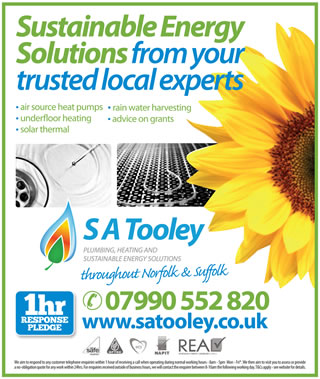News
 |
Renewable Heating Premium Payment (RHPP)Did you know that you can seek financial support towards the cost of installing renewable heating technologies through the Government's Renewable Heating Premium Payment (RHPP) Scheme. The RHPP is designed to help householders with the installation costs of products such as solar domestic hot water systems, air source heat pumps and ground source heat pumps. The RHPP runs from the 1st August 2011 to the 31st March 2012 and the payment is issued on a first come, first served basis. |
 |
How Improvements to Heating Controls Can Save You MoneyWith the recent announcements from British Gas, Scottish Power, npower and Southern and Scottish Energy that the cost of domestic gas is set to rise by 19% and electricity by 10%, saving energy - which results in reduced heating bills is at the forefront of most people's minds. Recent revisions to Part L Building Regulations (the conservation of fuel and power) which came into play in October 2010, now specify that a home must be divided into at least 2 heating zones - e.g. by using a thermostat controlling a motorised valve. The positive message for you as a homeowner is that zoning distributes heat more intelligently and economically than heating everything on a single zone. This effectively allows increased flexibility in how a house is heated, meaning you can be more energy efficient by only heating the areas of your home that are occupied, while the unused areas remain at a low temperature, so reducing your home's carbon footprint as well as your energy bills. Some specific benefits: Having a valve installed in the main heating circuit can regulate the flow rate and improve bad circulation around your radiators. Having a balanced central heating system can regulate the the temperature in each of your radiators so making them more efficient and ensuring that the system works as it was designed to. Give us a call at SA Tooley if you have any questions or would like any advice in relation to maximising your heating system. |
 |
The Renewable Heat IncentiveThe coalition Government has promised a financial incentive for low carbon heating - dubbed the Renewable Heat Incentive. In March 2011 the Government announced that £860 million had been committed to RHI for the period 2011-2014. How the RHI Works An important feature of the introduction of RHI is the decision to do in two phases. 2011 sees the funding of non-domestic installations. Domestic installations will not be covered until late 2012. To address concerns that this delay will damage the renewable heat industry, the Government has taken two steps: The first is to confirm that any eligible system installed and commissioned from July 15th 2009 can obtain RHI funding at the point that it becomes available. The second is to support the domestic sector with £15 million through Renewable Heat Premium Payments from Energy Savings Trusts. These will provide support for the installation of renewable heat technologies in the domestic household sector. RHPP Levels (Domestic Installations) Solar Thermal (All houses) £300 Eligibility Rules: 250mm loft insulation, cavity wall insulation where practical, MCS Approved Installer. |


